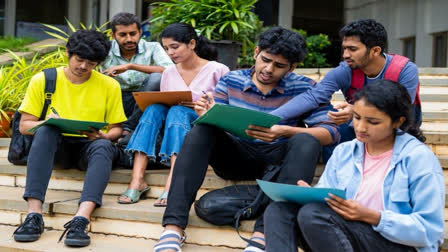When PhD students choose research problems in collaboration with industry, government departments, or ministries, they open the door to a multitude of benefits that extend well beyond the confines of academia. This symbiotic relationship between academia and external stakeholders fosters a research environment where intellectual rigor intersects with practical necessity, ultimately producing outcomes that are not only intellectually stimulating but also socially and economically relevant.
One of the most significant advantages of collaborating with industry or governmental agencies is the ability to conduct research that is directly applicable and of relevance to real-world issues. More often than not the academia is accused of being disconnected from the practical challenges facing society, but when students engage with industry or governmental stakeholders, they are offered the opportunity to work on issues with immediate relevance.
For instance, PhD students working on renewable energy technologies in consultation with energy companies or environmental ministries are addressing concerns related to climate change, energy efficiency, and sustainability—issues that have profound implications for national and global policy. Such research does not exist in an academic vacuum but serves a broader purpose, contributing to policy development, technological advancement, and societal well-being.
The opportunity to make such a tangible impact on society imbues the research work with a sense of purpose. Moreover, when research scholars work with industry or governmental bodies, they gain invaluable exposure to practical knowledge, which enhances their skill set and prepares them for the complexities of the professional world, which is usually quite different than the academia.
This interdisciplinary collaboration fosters a deeper understanding of how theoretical concepts can be applied to solve pressing issues and challenges. For example, a student researching artificial intelligence (AI) in collaboration with a tech company can not only delve into the theoretical aspects of machine learning but also engage in the development of real-world AI applications for autonomous vehicles, climate change, waste management, smart healthcare systems etc.
Such hands-on experience bridges the gap between theory and practice, allowing students to acquire a set of transferable skills that are highly sought after in both academic and non-academic sectors. Furthermore, the process of translating academic findings into practical solutions often demands communication skills that are attuned to a wider audience, including policymakers, business leaders, and the public. This hones a student’s ability to communicate complex ideas in accessible terms, a skill that is invaluable in an increasingly interdisciplinary and interconnected world.
Besides these intellectual and professional benefits, collaborations with industry or ministries also offer significant material advantages. Research funded by external stakeholders often comes with increased access to resources, including financial support, infrastructure, and data. For example, a PhD student working on healthcare innovation in partnership with a hospital network or pharmaceutical company may gain access to clinical trial data or cutting-edge laboratory facilities that would otherwise be unavailable within the academic context. This not only elevates the quality of the research but also opens avenues for novel discoveries that might not have been possible within the limited scope of traditional academic funding.
